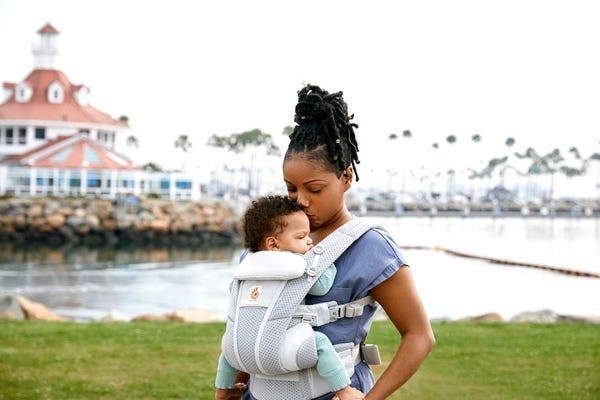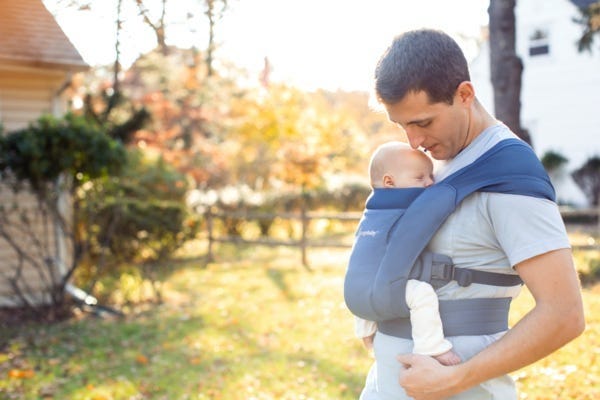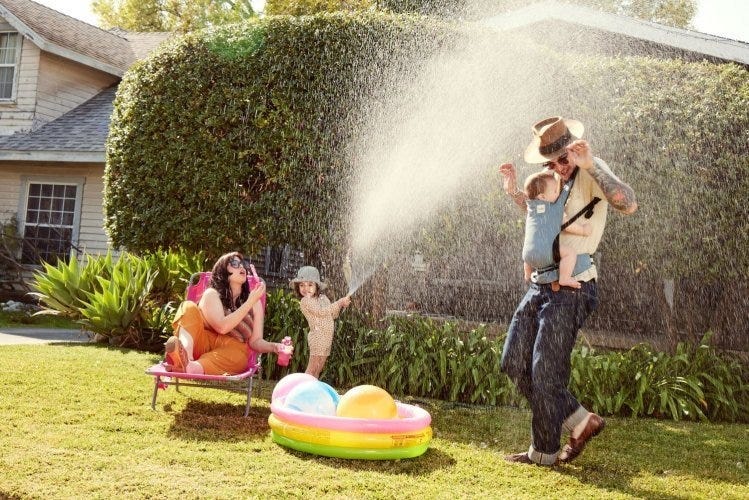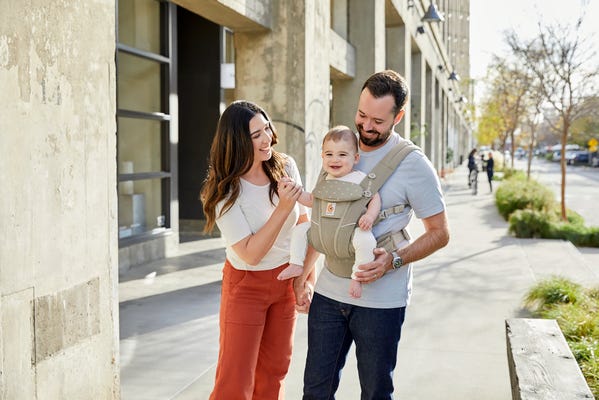
Adopting a Newborn: Journey and Attachment Challenges
The process of adoption is often long and emotional. By the time the exhausted new parents have been united with their baby, it is time to begin the journey of becoming a family. The joy and excitement of this new beginning, however, can sometimes conceal a very real challenge: how to form a strong attachment with this unfamiliar baby?
Understanding Attachment Difficulties When Adopting a Newborn
According to Dr. Walter D. Buenning, Ph.D. and expert in treating Reactive Attachment Disorder, 10-30% of infants adopted at birth may have trouble attaching to their adoptive parents. While there is little research to determine the exact cause of an infant’s difficulty in attaching, this behavior is usually associated with early trauma: neglect, abuse, abandonment, or multiple placements.
Effective Strategies to Encourage Attachment
Lacking a specific “cure for difficult attachment, experts agree on a few behaviors that parents can implement to encourage contact, bonding, and connection.
- Carrying and Inclusion: Carry your baby as much as possible. Invest in a comfortable baby carrier or sling and include the baby in your daily activities.
- Prompt Response to Needs: Meet your baby’s needs as soon as possible. While earning your baby’s trust, it is important to respond quickly to her cries.
- Encourage Eye Contact: Critical to the attachment process, eye contact stimulates infants and conveys trust. Smile often to demonstrate positive body language.
- Flexible Expectations: Keep your expectations flexible. Even if your child is not a newborn, he is “newly born” to your family.
- Shared Laughter: Laugh and have fun. Dance, jump, play, and be silly with your baby. Shared laughter is an incredibly powerful baby bonding tool.
- Limiting Visitors: Limit visitors for the first few weeks. Your new baby needs to know who his parents are, and have a chance to become familiar with you.
According to Dr. Jane Aronson, specialist in adopted babies and a parent of an adopted baby herself, most orphaned infants face extreme neglect. Lying soiled in cribs, drinking from propped bottles, deprived of human touch and nurture, these children grow up unaware of their “physical place in the world . These children face major challenges in developing intimacy and closeness. Aronson says, “They do not experience the normal intimacy of a primary caretaker who would be holding, touching, talking to them, and creating a model of reciprocal communication. In nurturing situations, the adult looks endearingly at the baby; the baby looks back transfixed and connected. The adult speaks in high pitched musical tones, and the baby mimics almost immediately. This is repeated over and over again, consolidating the millions of stimuli in the baby’s brain. The baby experiences sensations: I feel good. I feel bad. I am hungry. I am tired. And these feelings are then greeted with the best guesses of the parent or caretaker. Those simple pathways are at the heart of attachment and intimacy. And they are missing for orphans, a deficit that can lead them down a path to poor self-regulation, language delays, and attachment issues. These deficits can be reversed with time, patience, and consistent loving care.”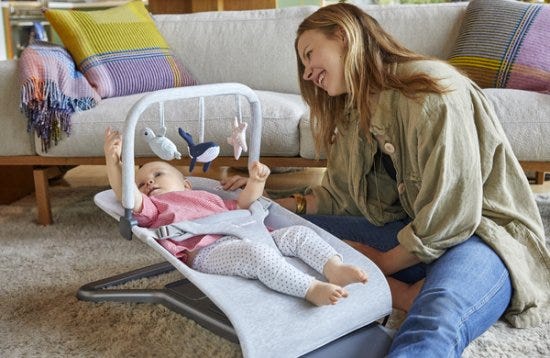
Navigating the Path to Attachment
While every baby and family situation is different, the above basic guidelines should enable parents to begin the process of bonding with a newborn. The process of becoming truly attached, is establishing trust, and ultimately, love. Baby bonding will vary widely from one family to the next. Understand your own child and her unique history, utilize the support and resources available to you, and treat your baby and yourself with kindness and patience. The journey of creating a family is the ultimate challenge, and can be filled with hope, triumph, and love.
Emotional Benefits of Getting Outside
Spending time in nature with your baby can strengthen the bond between you. The simple act of holding your baby close, feeling their warmth, and sharing new experiences together can create strong emotional connections. It’s also a wonderful way to reduce stress and improve your mood. When my littles were extra fussy, I’d take a walk around the neighborhood. Even though I don't live in an area with trails and surrounded by nature, simply behind outside changed everything. A little vitamin D does wonders!
Cognitive Development
Nature is a sensory wonderland for babies. The different sights, sounds, and smells can stimulate your baby’s senses and promote cognitive development. Watching leaves rustle, hearing birds chirp, and feeling the texture of a tree bark can all contribute to their learning and development.
All About Baby Carriers for Nature Adventures
Choosing the Right Baby Carrier
When it comes to selecting the best baby carrier for summer adventures, there are several options to consider.
Types of Baby Carriers:
- Wraps: Perfect for newborns, providing a snug and secure fit.
- Slings: Ideal for quick and easy use, offering good ventilation.
- Soft Structured Carriers: Versatile and comfortable for both parent and baby, suitable for longer trips.
Factors to Consider:
- Baby’s Age and Weight: Ensure the carrier is appropriate for your baby’s size and weight. For example, Ergobaby’s Embrace Newborn Carrier is perfect for the fourth trimester where baby is small and you’re looking for an easy way to stay close. As they grow, you’ll want to upgrade to an all-position carrier that’s meant for growing babies.
- Parent’s Comfort and Ergonomics: Look for carriers with padded shoulder straps and lumbar support if you’re planning on longer outings.
- Ease of Use: Choose a carrier that is easy to put on and take off.
- Climate and Breathability: Opt for carriers made of breathable fabrics to keep you and your baby cool in hot weather.
Safety Tips:
- Proper Positioning: Ensure your baby is seated correctly, with their legs in an "M" position and their head should be close enough to kiss.
- Checking for Wear and Tear: Regularly inspect your carrier for any signs of damage.
- Ensuring Adequate Support: Make sure the carrier provides proper support for your baby’s head and neck.
Exploring Nature with a Baby Carrier
Ideal Spots for a Nature Walk with Baby
- Parks and Gardens: Great for leisurely walks and picnics.
- Nature Trails and Forests: Perfect for more adventurous outings.
- Beaches and Lakesides: Wonderful for enjoying the water and sand, with the right carrier.
Activity Ideas
- Hiking: Enjoy a scenic hike with a hiking baby carrier that offers support and storage.
- Bird Watching: Use your carrier to keep your baby close while you explore and observe wildlife.
- Picnics: A carrier can free up your hands, making it easier to carry picnic supplies.


Advantages of Using Strollers for Nature Adventures
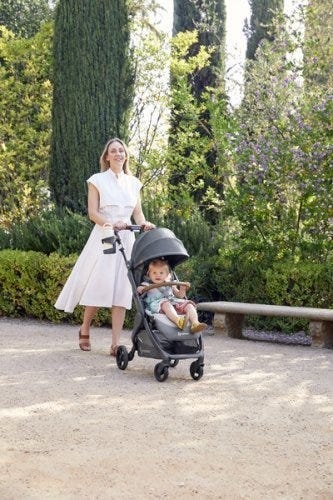

While baby carriers are fantastic for mobility and closeness, depending on the adventure of choice you might want to be a stroller along too.
There are a LOT of baby stroller options on the market. So we understand how confusing it can be to choose the one that’s right for your family. Not only are there a variety of brands, but a variety of strollers that serve different purposes.
There are a few types of strollers on the market:
- Full-sized stroller: This is typically the stroller parents thing of buying for all its versatility.
- Lightweight or umbrella stroller:These compact strollers are perfect for on-the-go adventures.
- Jogging stroller: Designed for parents who want to combine fitness with outdoor adventures.
- Double stroller: Designed for parents with multiple kids, especially twins.
- Car seat carrier: These strollers connect to a specific car seat. We don't typically recommend these as they can be unsafe for baby and uncomfortable for parents who are pushing.
Learn more about the types of strollers and which one would be best for you.
Benefits of Bringing a Stroller
- Storage Space for Gear: Ample room for carrying all your essentials like a diaper bag, beach toys and more.
- Shade and Weather Protection: Built-in canopies to shield your baby from the sun when they are lounging.
- Options: If you have more than one kid, you can stroll with one and carry the other. Or, if you’re getting warm or your little one is getting fussy, you can switch up their position from stroller to carrier or vice versa.
Safety Tips for Strollers
- Ensure your stroller is in good working condition. Make sure buckles are still buckling and that there are no rips or holes that could compromise your baby’s safety.
- Use sunshades or bug nets to protect your little one’s skin.
- Securing the baby properly: always buckle up your baby for safety even if you think they are old enough to go without the buckle.
Combining Baby Carriers and Strollers
For the ultimate flexibility, consider using both a baby carrier and a stroller on your outings.
Combining both options allows you to adapt to different situations. Use the carrier for more rugged trails and switch to the stroller for smoother paths or when your baby needs a nap.
Transition Tips
- Smooth Transitions: Plan stops where you can easily switch from carrier to stroller.
- Pack Light: Only bring essentials to make transitions easier.
Tips for a Successful Adventure
Planning Ahead
- Route Planning: Choose baby-friendly trails and parks. Check local mom groups or outdoor groups and get recommendations for the best outings for kids.
- Check Weather Conditions: Avoid extreme heat or unpredictable weather. Even with our most breathable carriers, when it’s hot, it’s hot. And having two bodies against each other in the heat will be naturally hot and sticky already.
- Packing Checklist: Include diapers, snacks, water, sunscreen, and a first-aid kit. These all-position carriers have storage pockets where you can fit some of the items easily!
- Stay Hydrated and Nourished: Pack healthy snacks to keep energy levels up and bring plenty of water for both you and baby.


Summer adventures with your baby are a wonderful way to create lasting memories and enjoy the beauty of nature together. From baby carriers to strollers, Ergobaby products are designed to provide comfort and ease for both you and your little one. So, gear up, get outside, and explore the world with your baby by your side.
Ready to embark on your own summer adventures? Check out Ergobaby’s range of baby carriers and strollers to find the perfect match for your family’s needs. Visit our website today and start planning your next outdoor excursion!

























